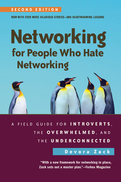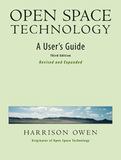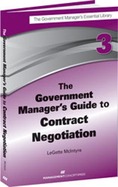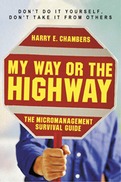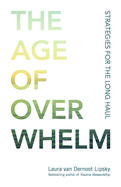Zack politely examines and then smashes to tiny fragments the “dusty old rules” of standard networking advice. She shows how the very traits that make many people hate networking can be harnessed to forge an approach more effective and user-friendly than traditional techniques. This edition adds new material on applying networking principles in personal situations, handling interview questions, following up—what do you do with all those business cards?—and more.
Networking enables you to accomplish the goals that are most important to you. But you can't adopt a style that goes against who you are—and you don't have to. As Zack writes, “You do not succeed by denying your natural temperament; you succeed by working with your strengths.”
2020
Whether you're planning future travels or exploring the diverse cultures in your own community, Crossing Boundaries provides strategies for growth and getting out of your comfort zone. Moving between inspirational stories, humorous anecdotes, and helpful conflict resolution tips, Abu Sarah guides you through having personal, meaningful experiences with people from different backgrounds. He sketches a vision of a kind of travel with the power to help heal the divides of a world polarized by seemingly intractable conflicts.
Abu Sarah argues that transformative travel can start at home. He knows this firsthand: a former Palestinian radical, he shares his own moving story of creating connections across his divided hometown of Jerusalem, and of co-founding a tour agency with a Jewish American. Today, they direct Dual Narrative Tours, co-led by guides from different communities in countries like Israel and Palestine, Ireland and Northern Ireland, North and South Vietnam, and many others.
Drawing on these experiences, Abu Sarah's book offers tips on how to meet people naturally and safely, design an inclusive itinerary, shop to support the local economy, deal with setbacks, and much more. A guide for going beyond museums and monuments, this book is for both the first-timer and seasoned veteran. Abu Sarah shows that if you put down your phone and strike up a conversation, you can break through the walls that separate people. You'll discover shared values, build lasting relationships, and realize that far more unites us than divides us.
Open Space Technology: A Users Guide is just what the name implies: a hands-on, detailed description of facilitating Open Space Technology (OST). OST is an effective, economical, fast, and easily repeatable strategy for organizing meetings of between 5 and 2,000 participants that has been used in thousands of organizations in 134 countries and just keeps growing in popularity. Written by the originator of the method, this is the most authoritative book on the rationale, procedures, and requirements of OST.
OST enables self-organizing groups of all sizes to deal with hugely complex issues in a very short period of time. This step-by-step users guide details what needs to be done before, during, and after an Open Space event.
Harrison Owen details all the practical considerations necessary to create Open Space. He begins with the most important questionshould you use Open Space at all?and examines what types of situations are appropriate for Open Space Technology and what types are not. He then goes on to look at nuts-and-bolts issues such as supplies, logistics, and who should come and how you should go about getting them there.
This third edition adds a survey of the current status of Open Space Technology around the world, an updated section on the latest available technology for report writing (a key aspect of the Open Space process), and an updated list of resources.
Federal managers often find themselves at the negotiating table, charged with reaching a solid, fair deal for their agency. Now, you can gain a competitive edge in even the most difficult negotiations with time-tested, effective tactics from a noted authority on federal negotiations. This guide will help you understand the negotiation process, plan for it, develop strategies and tactics, anticipate and counter the other side's strategies and tactics, and conclude and document the negotiation. Concise, accessible, and authoritative, this book offers a veritable arsenal of winning strategies that you and your team can use in your next negotiation.
- By the author of the bestselling Bad Attitude Survival Guide (more than 40,000 copies sold), named one of the top business books of 1998 by Executive Book Summaries
- Everyone thinks they know what micromanagement is, but this book presents a specific, detailed definition illustrated with concrete examples
- Offers successful strategies for overcoming your own micromanaging behavior and for responding when you are being micromanaged
2018


